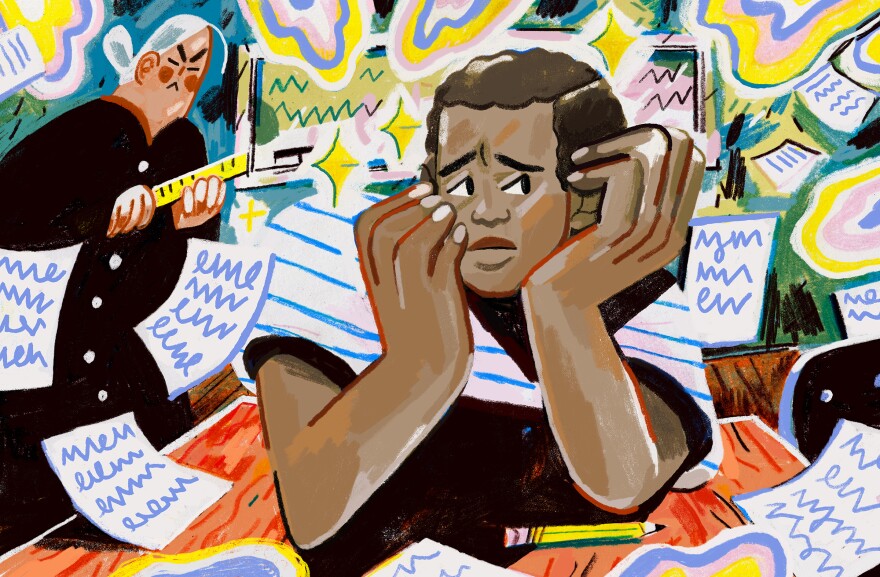Some students are returning to the classroom for the first time in two years without required COVID restrictions, and first, second and third graders have never known life at school without the pandemic.
Dr. Alissa Briggs a nationally certified school psychologist with the University of Kentucky whose expertise is in assessing and treating neurodevelopmental and mood disorders, says it’s important to support kids’ mental health as they adjust to a “normal” school year.
Dr. Briggs says the prevalence of suicide in children and adolescents has increased 60% since 2007. She says that’s when social media and easy on-line access through smartphones began to take off. Briggs believes the internet has benefits, but says if we learned anything from the pandemic, it’s that everyone, children in particular, need in-person social interaction to thrive.
From UK Now:
Amy Lynn Meadows, M.D., is director of the Division of Child and Adolescent Psychiatry at Kentucky Children’s Hospital.
Kids have coped with a lot of change over the past several years. It’s important to recognize that change, even good change, can sometimes be challenging for kids. As we work on establishing post-pandemic equilibrium, we must be sensitive to those who may be having a harder time with the transitions.
Mental health experts are still seeing higher rates of anxiety and mood issues in children and adolescents compared with pre-pandemic rates. Depression and anxiety in children may not look exactly like it does in adults — they may be more likely to isolate themselves or act out.
Here are few tips to help your child during this time of transition:
Talk it out. The most important thing is to be open and communicate about emotions with kids. Talk with kids regularly, like at dinner or at bedtime, and ask specific and deeper questions. Don’t be afraid to ask kids questions. We all have a role to play in normalizing mental health, but we can start by having open discussions about mental health, stress and self-care with our kids.
Take it slow. Parents sometimes jump into problem-solving mode when we really should just slow down and acknowledge that it can be normal to be stressed or anxious. Grown-ups can validate the emotion, be open about talking about it, and help kids to come up with their own solutions instead of us trying to solve it for them.
Get back into a routine. One of the biggest challenges is getting kids back in a good routine. Mental and physical health are closely related, so we talk about a few cornerstones. Make sure that kids have had their checkups and are physically healthy, pay attention to regular sleep (including a set bedtime and wake-up time each day), limit screen time (including putting phones away), and encourage kids to have some gentle movement each day — walking, playing, stretching.
Take advantage of available resources. Pediatricians and primary care providers can be a great resource for screening and information. Online, I always encourage families to seek reputable resources, including the Resource Centers through the American Academy of Child and Adolescent Psychiatry.
If your child’s stress or anxiety is interfering with his or her life (for example, school, ability to enjoy friends or family or their activities), reach out to your child’s doctor, school counselor or find a mental health professional for an evaluation.
If you, your child, or someone you know are thinking about suicide or self-harm, call or text 988, the national Suicide & Crisis Lifeline or go to the nearest hospital emergency room.



